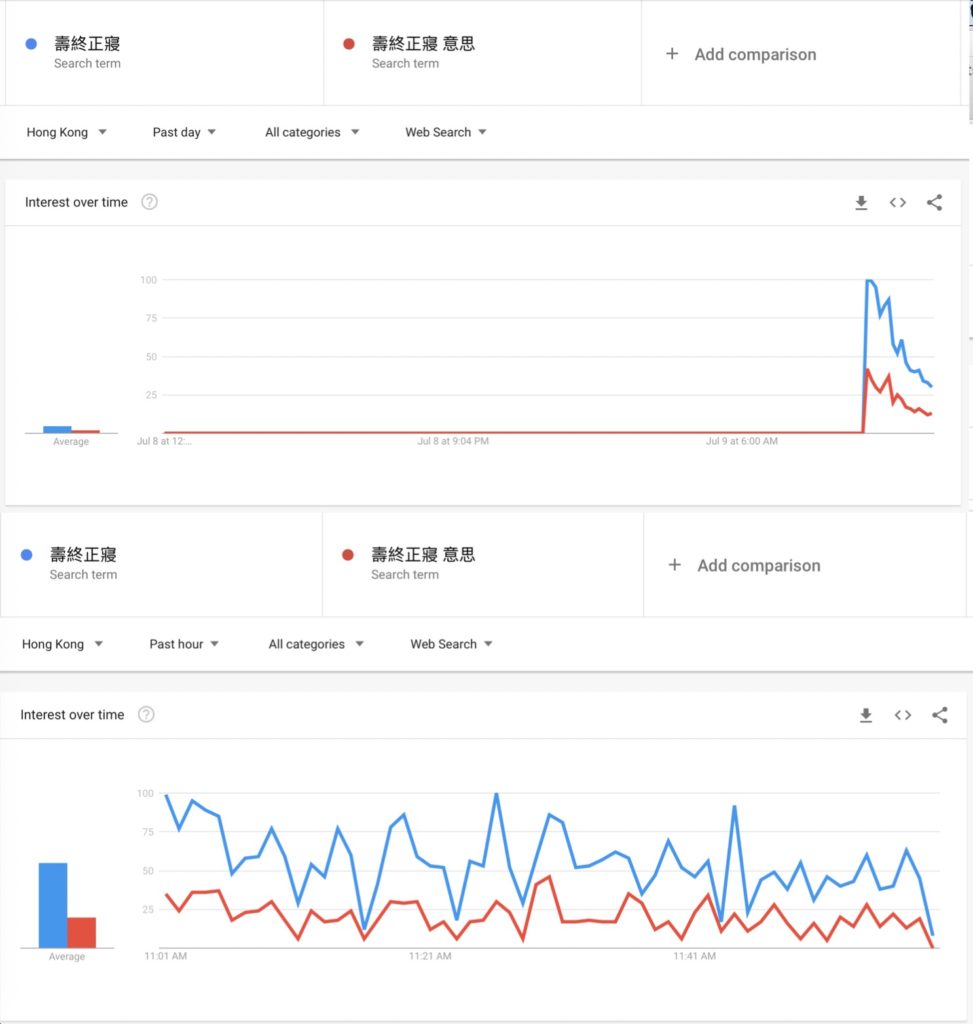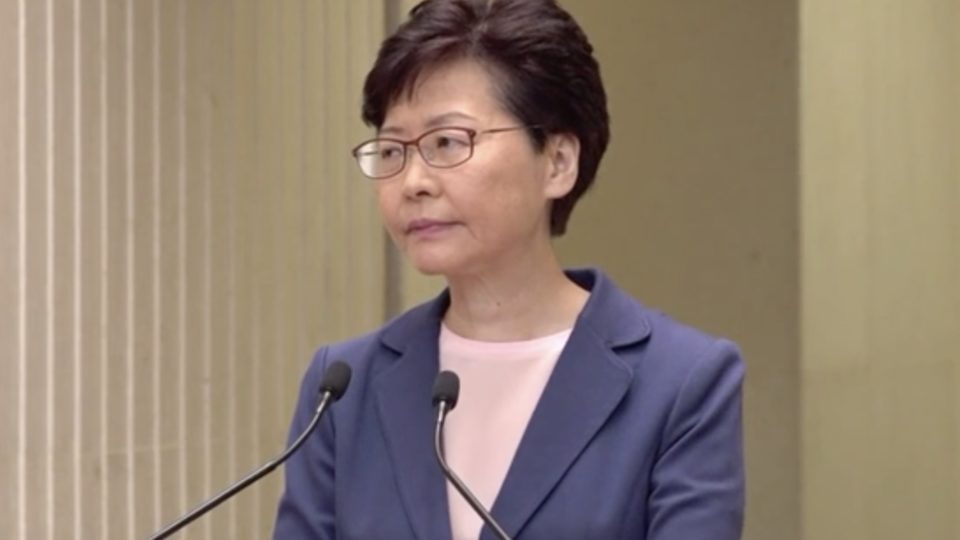By her own estimation, embattled Hong Kong Chief Executive Carrie Lam thought she was making a pretty “resolute and decisive” statement when she stood up in front of the press this morning and reiterated, in English, that the controversial extradition bill at the center of weeks of protests “is dead.”
But, far from putting the raging protest movement against the bill to rest, the Cantonese version of Lam’s remarks have only prompted more questions, at least among the Twitterati — specifically: “Just how dead is the bill, exactly?”
In the English version of her speech, Lam used the bog-standard “dead” to describe the bill, a word that would be expressed in Cantonese by the character “死”. Chinese-speaking reporters and observers were quick to point out, however, that in the Cantonese version of her remarks, she used the phrase “壽終正寢”, which translates to something closer to “dying of natural causes.”
Lam seems constitutionally incapable of conceding any point fully. Extradition law is “dead” (actual term she used below, trans via @plecosoft) but she can not bring herself to say “withdrawn”; police violence will be investigated by IPCC but not by independent commission. https://t.co/TdEa9JGGOV pic.twitter.com/yDvq0ISqqX
— Antony Dapiran (@antd) July 9, 2019
The meaning of "dead," in English, is clear enough, but what Carrie Lam said in Cantonese, 壽終正寢, gives a better idea of what's going to happen to the extradition bill: nothing.
The phrase means something has reached its end of life, not dying because of an intervention.
— Alan Wong (@alanwongw) July 9, 2019
Given the soaring level of distrust between the people and the government at the moment, it may come as no surprise that Lam’s use of the slightly fusty idiom has prompted some skepticism as to her true intentions.
It has also, apparently, prompted no small amount of confusion, with Google reporting a spike in searches for the exact meaning of the phrase. At one point today, the expression was the most-Googled search term in the SAR.
The graph below shows the so-called interest level (expressed in Google-ese on a 0-100 scale) in the Cantonese search terms “dying of old age” (blue) shooting from zero to 100 practically the second the phrase was uttered. Interest in the phrase “dying of old age meaning” (red) also spiked simultaneously.

The furor over the seemingly innocuous choice of words — what kind of “dead” would have been acceptable? murdered (謀殺)? slaughtered (屠殺)? obliterated (消滅)? — may seem a bit nitpicky, but this isn’t the first time people have accused Lam of playing a “translation trick” on the international media.
When Lam first sought to appease the protest movement by announcing the bill had been “suspended” in English, netizens almost immediately seized on her use of the Cantonese “暫緩”, which can mean suspend, but is closer to “temporarily slow down.”
https://twitter.com/addictionado/status/1140222368062689284
Indeed, protesters have been demanding Lam utter an altogether different, and very specific word for weeks — “withdraw,” or “撤回”.
The absence of that phrase in Lam’s announcement prompted pro-democratic lawmakers to also call for clarification today.
Pro-dem convenor Claudia Mo made sure there would be no debate over the meaning of her own remarks, calling Lam “a liar,” accusing her of “playing with words to try and pacify this community,” and calling on her to “pay her political price” and step down.
Mo also engaged in an ontological dissection of the nature of life, death, and existence as it pertains to an inanimate entity like a proposed set of amendments to an extradition law.
“An object doesn’t die,” she said. “A person may die; a person cannot be resurrected. But then an object can always be remade, come in the form of a new model.”
The digression gave voice to a concern that has been on protesters’ lips ever since Lam first announced the “pause” in the legislation: at any moment the “suspended” bill could reemerge to join the ranks of such famous second acts as Gandalf, Spock, Robocop, and Jesus — that is, be resurrected.
Perhaps sensitive to that concern, fellow pro-dem Helena Wong demanded Lam “send a letter to the president of LegCo to certify the death of the bill.” (Makes sense — the bill’s dead, so it needs a death certificate, right?)
Meanwhile, as the Very Serious Conversation over Lam’s syntax swirls on, in the lighter-hearted corners of the internet, people have been amusing themselves with an “idiom competition” to see what type of phrasing may have been more appropriate.
So far contenders have included “vanished into scattered ashes and puffs of smoke,” “evaporated into thin air,” “gone to heaven,” “fallen into the abyss,” and — our personal favorite — “banished to a cold palace.”




